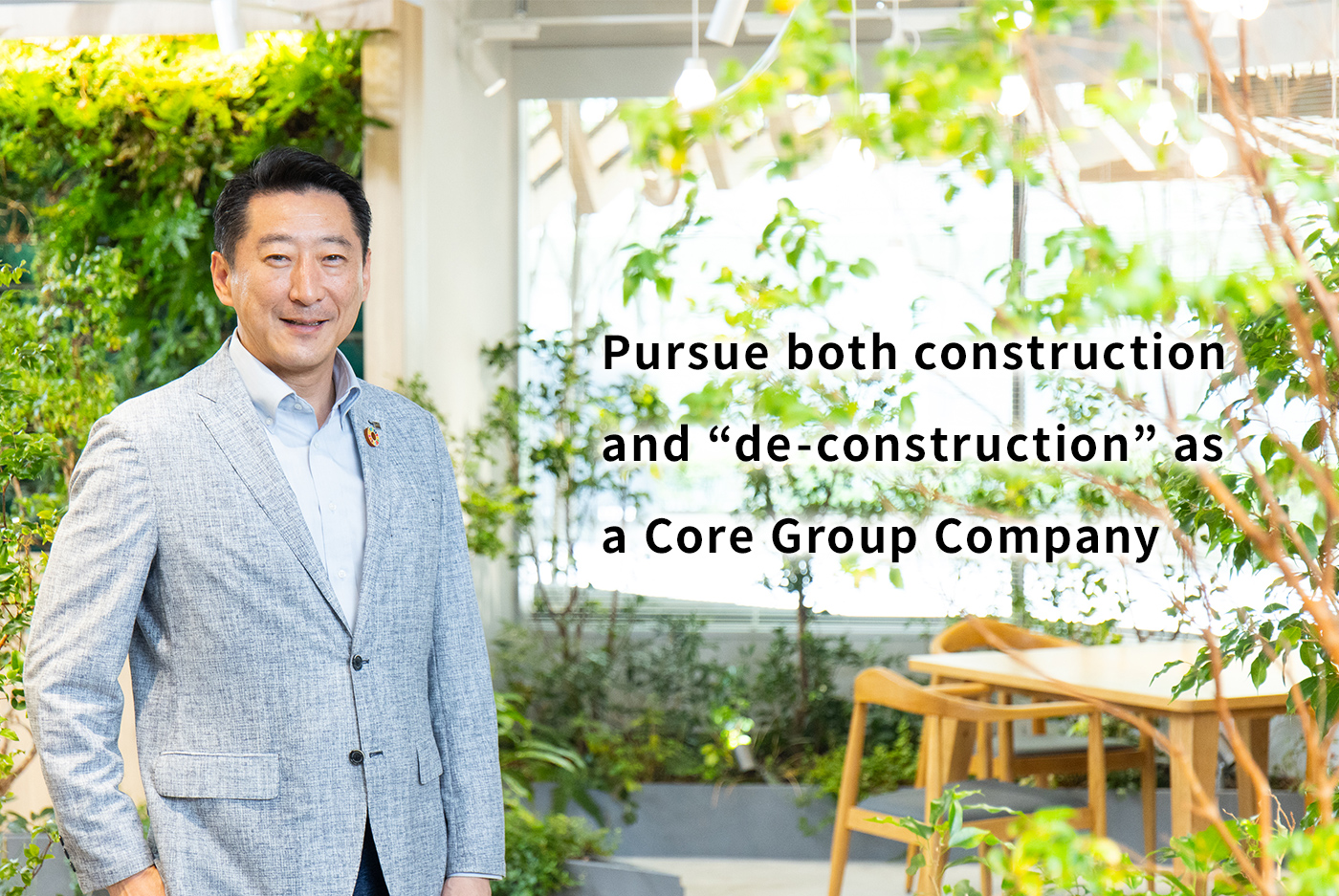Top message

Enhance Added Value Through a Virtuous Cycle Business Model of “De-construction” and “Construction”
Various social challenges are becoming apparent amid socio-economic trends and changing values, including aging infrastructure, shortage of workers, and the need to reduce environmental impacts. Alongside this, the role expected of the construction industry is also undergoing significant change. Companies must always remain relevant and needed by society.
In this era of rapid change, even companies with long histories and large scales can lose their competitive edge in an instant if they fail to adapt. As an infrastructure company, we strive to refine our technologies and safety measures on a daily basis. We also face societal trends and challenges head-on, pursuing swift and bold transformation to remain a company that continues contributing to local communities and society.
We have been implementing our NEXT10 management plan since FY2019. This plan established three strategic pillars for achieving our goals: “1. Productivity reforms,” “2. Company-wide promotion of the ‘de-construction’ business,” and “3. Improvement of corporate culture.” Starting in FY2025, we will shift our top priority to “company-wide promotion of the ‘de-construction’ business” and further promote this initiative. At the same time, even within the “construction” business, we will adopt a mindset focused on “de-construction,” look at things from a business owner and social perspective, and tackle the creation of added value on a company-wide basis. We will continue to pursue a one and only business model that integrates “construction” and “de-construction,” combining the engineering capabilities cultivated through our “construction” business with the insights and know-how gained from our infrastructure management business.
Anticipating Future Changes with a “Healthy Sense of Urgency”
Looking back on the previous INFRONEER Medium-term Vision, amid rapidly rising prices and soaring labor costs, we secured higher profits than the industry standard through strict adherence to order discipline to ensure reasonable profits, construction periods, and construction systems at the time of order, as well as by minimizing lost profits.
To achieve the ambitious goals set in our newly launched Medium-term Business Plan “INFRONEER Medium-term Vision 2027,” we will further enhance our order discipline, build in quality and efficiency from the upstream phase of projects to withstand cost competition and environmental pressures, develop technologies for greater efficiency together with our Group and partner companies, advance DX initiatives, and focus on improving our corporate structure. All these efforts will be carried out with a focus on differentiating ourselves from competitors and enhancing added value.
Asia’s largest arena, “IG Arena,” developed under Japan’s first BT+ concession* model, in which we participated as the designer and constructor, has been successfully completed. From July 2025, the 30-year management phase will begin, and we will continue to participate as the operator, positioning this as a core part of our infrastructure management business. The sports market in Japan has been growing annually, and its scale is expected to expand further; however, there remains a significant gap between the industrialization of sports overseas and in Japan. Considering regional revitalization and the overall development of the sports industry, we will identify challenges and risks, but view them as opportunities, and we will continue to pursue a new business model integrating infrastructure and management, enabling more efficient and sustainable operations from the bidding stage, and maximizing the future value of facilities.
In this era of rapid change, it is essential to collaborate with our Group companies, local communities, and even different industries in order to continue generating profits and remain a company needed by society, even in a potentially shrinking market. We will work closely with our partners and continue to take on new initiatives. As the core company of the INFRONEER Group, we are proud and responsible, and all employees will maintain a healthy sense of urgency, continuously challenge themselves, and implement swift reforms to create new value.

Soji Maeda
Joined MAEDA CORPORATION in 1997; served as a Director and Managing Officer from June 2002; became the President and Representative Director (current) of the company in 2016; became the Director and Chairman of INFRONEER Holdings in October 2021; became Executive Officer (current) in June 2025.